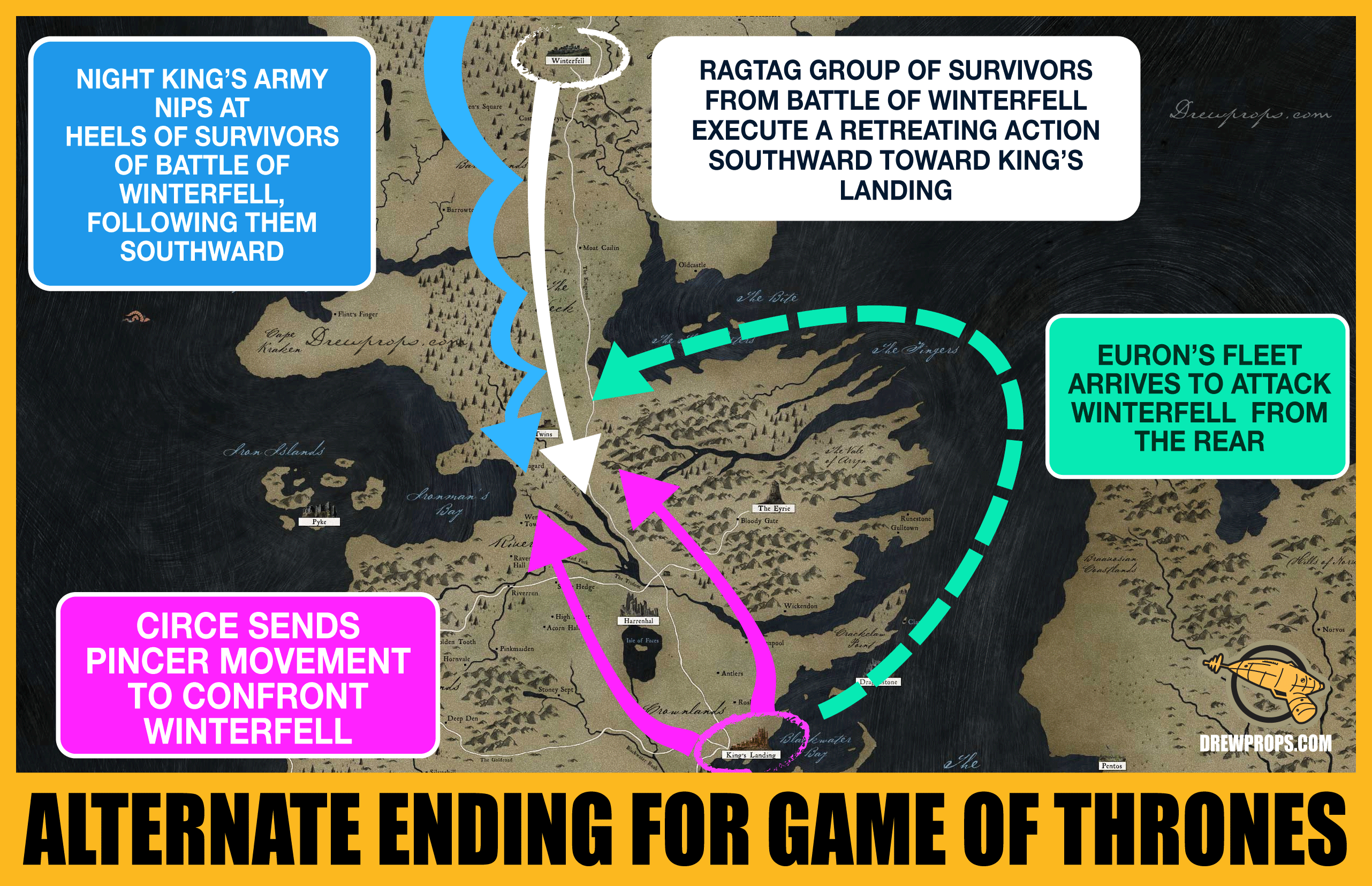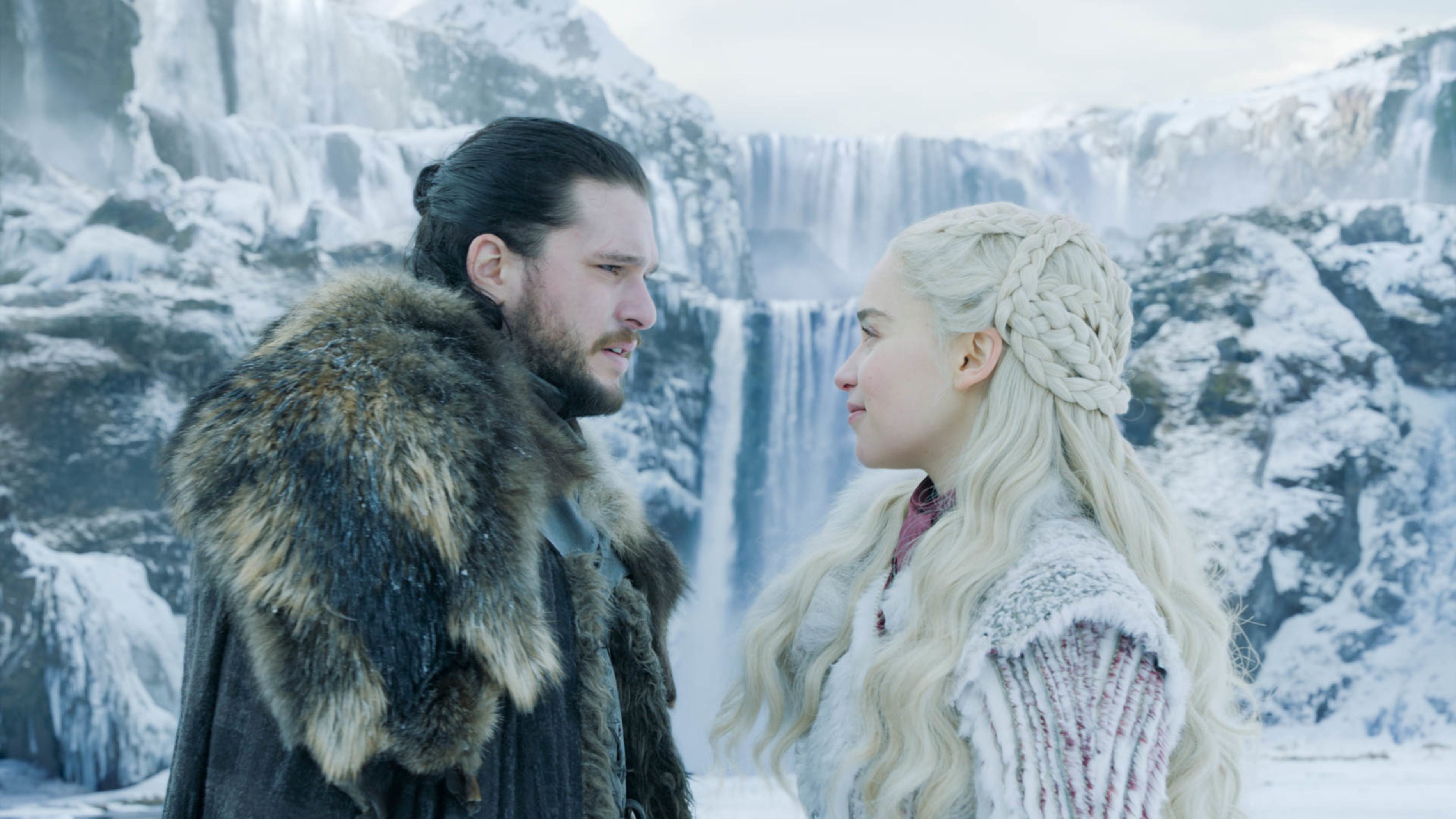When the final season of "Game of Thrones" aired in 2019, fans were left divided, debating whether the conclusion lived up to the series' epic legacy or fell short of expectations. The show, adapted from George R.R. Martin's "A Song of Ice and Fire" novels, had captivated audiences worldwide with its intricate storytelling, complex characters, and unexpected twists. However, the controversial conclusion reflecting on the ending of Game of Thrones sparked heated discussions, with some praising its bold choices and others criticizing its rushed execution. This article delves into the reasons behind the polarized reactions, explores the key moments that shaped the finale, and examines how the show's legacy endures despite its divisive conclusion.
As one of the most ambitious television series of all time, "Game of Thrones" set a high bar for storytelling, character development, and world-building. Yet, the final season faced accusations of prioritizing spectacle over substance, leaving fans and critics alike questioning the decisions made by the showrunners. From Daenerys Targaryen's descent into madness to Bran Stark's unexpected ascension to the Iron Throne, the controversial conclusion reflecting on the ending of Game of Thrones continues to be a topic of debate. This article aims to provide a balanced perspective, analyzing both the strengths and weaknesses of the finale while addressing the broader implications for the fantasy genre.
Despite the backlash, "Game of Thrones" remains a cultural phenomenon, influencing countless other series and leaving an indelible mark on television history. By examining fan reactions, dissecting pivotal scenes, and exploring the creative decisions behind the finale, we can gain a deeper understanding of why the show's conclusion was so polarizing. Whether you loved it or loathed it, the controversial conclusion reflecting on the ending of Game of Thrones offers valuable insights into the challenges of adapting beloved literary works for the screen and the delicate balance between satisfying fans and staying true to the creators' vision.
Read also:Discover The Magic Of Filmyworld Hollywood Your Ultimate Guide To Entertainment
Table of Contents
- Was the Ending of Game of Thrones Worth the Hype?
- Why Did Fans React So Strongly to the Finale?
- Key Moments That Shaped the Controversial Conclusion
- How Did the Showrunners Defend Their Decisions?
- What Can Other Shows Learn from Game of Thrones Finale?
- Fan Theories vs. Reality: How Did the Finale Measure Up?
- The Legacy of Game of Thrones: Beyond the Controversy
- Why the Ending Still Matters Years Later?
Was the Ending of Game of Thrones Worth the Hype?
The anticipation for the final season of "Game of Thrones" was immense, with fans eagerly speculating about who would ultimately claim the Iron Throne. For nearly a decade, the series had delivered shocking twists, epic battles, and morally complex characters, setting a high standard for storytelling. However, when the controversial conclusion reflecting on the ending of Game of Thrones finally arrived, it left many viewers questioning whether the payoff was worth the years of buildup.
One of the most significant criticisms was the pacing of the final season. With only six episodes to wrap up the sprawling narrative, some fans felt that key character arcs were rushed or unresolved. For instance, Daenerys Targaryen's transformation from a liberator to a tyrant was a pivotal moment, but many argued that her descent into madness lacked sufficient buildup. Similarly, Bran Stark's ascension to the throne felt abrupt and disconnected from his earlier journey, leaving viewers wondering if the decision was made more for shock value than narrative coherence.
Despite these criticisms, there were moments in the finale that resonated with fans. Arya Stark's decision to leave Westeros and forge her own path was widely praised as a fitting conclusion for her character. Likewise, Jon Snow's exile to the Night's Watch provided a sense of closure for his arc, even if it wasn't the ending many had hoped for. While the controversial conclusion reflecting on the ending of Game of Thrones may not have satisfied everyone, it undeniably sparked conversations about the nature of storytelling and the challenges of concluding a beloved series.
Why Did Fans React So Strongly to the Finale?
The emotional investment fans had in "Game of Thrones" played a significant role in their reactions to the finale. For years, viewers had followed the intricate web of alliances, betrayals, and power struggles, forming deep connections with the characters. When the controversial conclusion reflecting on the ending of Game of Thrones failed to align with their expectations, it felt like a personal betrayal to many.
One reason for the backlash was the perceived deviation from George R.R. Martin's original vision. While the show had diverged from the books in earlier seasons, the final episodes seemed to prioritize shock value over character consistency. For example, Daenerys' decision to burn King's Landing was a shocking moment, but some fans argued that it contradicted her established motivations and values. This disconnect between the source material and the adaptation left many feeling disillusioned.
Why Did the Showrunners Choose Such a Controversial Path?
The showrunners, David Benioff and D.B. Weiss, faced immense pressure to deliver a satisfying conclusion to one of the most popular series in television history. In interviews, they defended their choices, stating that they wanted to subvert fan expectations and explore the darker aspects of power. However, this approach alienated some viewers who felt that the characters' actions were inconsistent with their development throughout the series.
Read also:How To Download Hub4u A Comprehensive Guide For Easy Access
What Were the Key Complaints from Fans?
- Rushed Pacing: Many felt that the final season didn't allow enough time for character arcs to unfold naturally.
- Unresolved Storylines: Certain plotlines, such as Jaime Lannister's redemption arc, were left incomplete.
- Unexpected Character Decisions: Choices like Bran becoming king felt arbitrary to some viewers.
Key Moments That Shaped the Controversial Conclusion
Several pivotal moments in the final season contributed to the polarized reactions. One of the most debated scenes was Daenerys' massacre of King's Landing. While some viewers saw it as a tragic yet inevitable outcome of her growing obsession with power, others felt it undermined her character's journey as the "Breaker of Chains." This scene encapsulated the broader debate about whether the controversial conclusion reflecting on the ending of Game of Thrones stayed true to its characters or sacrificed them for shock value.
Another key moment was Jon Snow's decision to kill Daenerys. While this act was foreshadowed throughout the series, some fans felt it was executed in a way that felt rushed and emotionally unearned. The scene's impact was further diminished by the lack of time spent exploring Jon's internal conflict and the aftermath of his actions.
Did the Final Battle Live Up to Expectations?
The Battle of Winterfell was one of the most anticipated moments in television history, but reactions were mixed. While the scale and intensity of the battle were praised, some viewers felt that the narrative stakes were diminished by Arya Stark's unexpected role in defeating the Night King. This twist, while surprising, left some fans questioning whether the buildup to the battle had been undermined by the resolution.
How Did the Showrunners Defend Their Decisions?
In the wake of the backlash, David Benioff and D.B. Weiss addressed criticisms in various interviews, explaining their creative choices and the challenges of concluding such a complex series. They emphasized their desire to subvert fan expectations and deliver a story that explored the cyclical nature of power and corruption. While some fans appreciated their boldness, others remained unconvinced, arguing that the controversial conclusion reflecting on the ending of Game of Thrones prioritized spectacle over substance.
What Did the Showrunners Learn from the Backlash?
The controversy surrounding the finale highlighted the importance of balancing creative vision with audience expectations. While Benioff and Weiss stood by their decisions, they acknowledged the difficulty of satisfying such a diverse fanbase. This experience likely influenced their approach to future projects, underscoring the need for careful planning and communication with viewers.
What Can Other Shows Learn from Game of Thrones Finale?
The polarized reactions to the finale of "Game of Thrones" offer valuable lessons for other shows attempting to conclude long-running series. One key takeaway is the importance of pacing and character development. By allowing sufficient time for arcs to unfold naturally, creators can avoid the pitfalls of rushed storytelling. Additionally, staying true to the established motivations and values of characters can help maintain audience trust and investment.
How Can Creators Avoid Alienating Their Audience?
To avoid alienating viewers, creators should prioritize consistency and coherence in their storytelling. While unexpected twists can be effective, they should serve the narrative rather than feel forced or arbitrary. The controversial conclusion reflecting on the ending of Game of Thrones serves as a cautionary tale about the risks of prioritizing shock value over character integrity.
Fan Theories vs. Reality: How Did the Finale Measure Up?
Fan theories about the ending of "Game of Thrones" were as diverse as the series itself, ranging from predictions about Jon Snow's parentage to speculations about the fate of the Iron Throne. While some theories, such as Jon's true lineage, were confirmed, others fell short of expectations. The controversial conclusion reflecting on the ending of Game of Thrones challenged fans to reconsider their assumptions and embrace the unpredictability of storytelling.
Which Theories Were Most Accurate?
- Jon Snow's True Heritage: Fans correctly predicted that Jon was the rightful heir to the Iron Throne.
- Daenerys' Downfall: Many theorized that her quest for power would lead to her demise.
The Legacy of Game of Thrones: Beyond the Controversy
Despite the backlash, "Game of Thrones" remains a landmark series that redefined television storytelling. Its influence can be seen in countless other shows that have since embraced complex narratives and morally ambiguous characters. The controversial conclusion reflecting on the ending of Game of Thrones may have divided fans, but it also sparked important conversations about the nature of storytelling and the challenges of adapting beloved literary works for the screen.
What Is the Show's Lasting Impact on Pop Culture?
From its groundbreaking use of visual effects to its exploration of themes like power, loyalty, and redemption, "Game of Thrones" has left an indelible mark on pop culture. Its legacy extends beyond the screen, inspiring books, games, and even academic discussions about its themes and characters.
Why the Ending Still Matters Years Later?
Years after its conclusion, the controversial conclusion reflecting on the ending of Game of Thrones continues to be a topic of discussion. Whether viewed as a bold experiment or a missed opportunity, the finale serves as a reminder of the power of storytelling to provoke thought, spark debate, and leave a lasting impression on audiences worldwide.
FAQs
Why Was the Final Season of Game of Thrones So Divisive?
The final season faced criticism for its rushed pacing, unresolved storylines, and character decisions that some fans felt were inconsistent with earlier seasons.
Did George R.R. Martin Approve of the Finale?
While George R.R. Martin provided input during earlier seasons, the finale was primarily crafted by the showrunners, leading to debates about how closely it aligned with his vision.
Will There Be a Spin-Off That Addresses the Controversial Ending?
Several spin-offs are in development, but none have explicitly stated that they will address the events of the original series' finale.
Conclusion
The controversial conclusion reflecting on the ending of Game of Thrones may not have pleased everyone, but it undeniably left a lasting impact on television history. By examining the strengths and weaknesses of the finale, we can gain a deeper appreciation for the challenges of storytelling and the enduring legacy of one of the most ambitious series of all time.
Learn more about Game of Thrones on HBO


